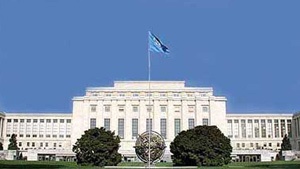UN Committee on the Elimination of Racial Discrimination, 80th Session
Latest Topics
01، Apr 2025
Erasure in Motion: Israel’s Forcible Displacement of West Bank Bedouin Communities
30، Mar 2025
SPECIAL FOCUS: Consolidating Annexation of the West Bank: Israel’s Demolitions in Area B
28، Mar 2025
Over 200 South African and Palestinian Human Rights Organisations Urge South Africa to Return to the International Court of Justice for Provisional Measures
27، Mar 2025
Re: PHROC Warns that UN Mandates are Failing to Protect Palestinians as Israel Kills Over 50,000 Palestinians, Meek Condemnations are Complicity
25، Mar 2025
Joint press release: Coalition Appeals Dutch Court Ruling for Failure to Uphold Obligations Under International Law
24، Mar 2025
World Water Day: Deprivation of Water and destruction of water installations are tools of Israel’s Genocide against the Palestinian people
Related Subjects
12، Oct 2019
Over 280 ESCR-Net Members Call for Stronger Treaty to Regulate Corporate Activities
09، Oct 2019
Al-Haq’s Engagement with the UN Committee on Economic, Social and Cultural Rights for Israel’s Fourth Periodic Review
08، Oct 2019
Al-Haq Welcomes Launch of World Health Organization Report on the Right to Health in the Occupied Palestinian Territory



 ‘Not a single drop’ – that is the amount of water Palestinians can access in more than 60 per cent of the West Bank, even though water is not scarce in a region that contains several aquifers as well as the Jordan River and other natural resources. ‘Not a single drop’ of water is allocated to the Palestinians, who live barely yards from the intensive-irrigation farms, lush gardens and swimming pools of the Jewish settlers.
‘Not a single drop’ – that is the amount of water Palestinians can access in more than 60 per cent of the West Bank, even though water is not scarce in a region that contains several aquifers as well as the Jordan River and other natural resources. ‘Not a single drop’ of water is allocated to the Palestinians, who live barely yards from the intensive-irrigation farms, lush gardens and swimming pools of the Jewish settlers.